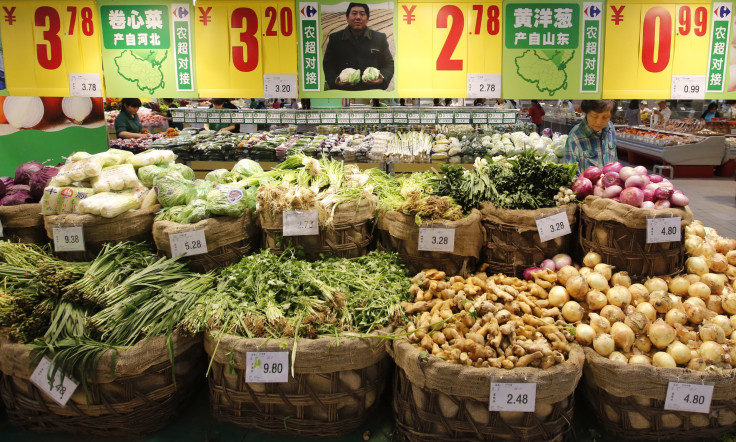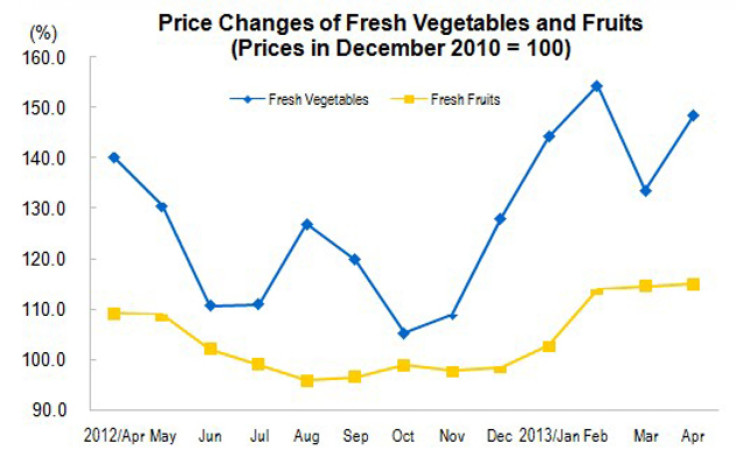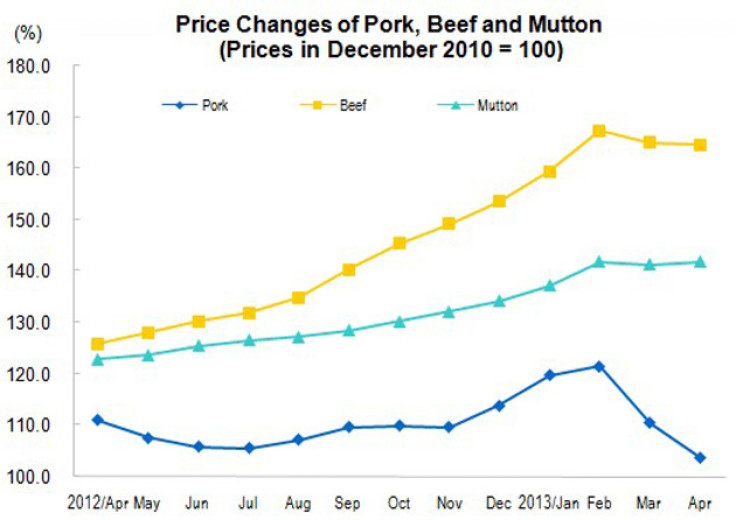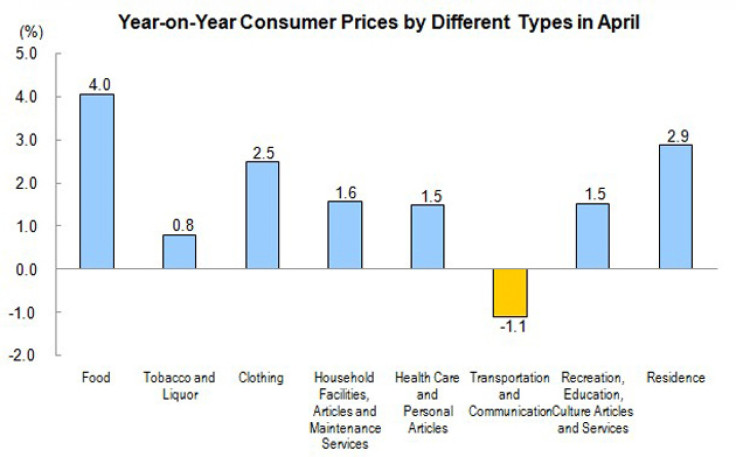China April 2013 Inflation: Pork Is Cheaper, But Not The Greens That Go With It

The rising price of fresh vegetables in China is offsetting falling pork prices, increasing the nation's overall inflation rate.
China's food prices increased 4 percent in April, above the overall consumer price index of 2.4 percent, according to the country’s National Bureau of Statistics’ latest report, which was released on Thursday.
China’s central bank has said that inflation is a concern in an economy that grew by 7.9 percent last year, the slowest growth since 1999. The economy is expected to do far better this year, but inflationary pressure could produce significant headwinds as the year progresses.
Excluding food prices, the country’s inflation remains subdued, growing by 1.6 percent, or lower than the first quarter average, so for the time being, the government doesn’t seem too concerned about overall price increases, even if consumers are taking a hit in the grocery produce aisle.
The biggest jump in consumer prices was seen in the price of fresh vegetables at 5.9 percent. The cost of the produce increased for five of the past six months. Fruit prices have also been rising but have leveled off since February.

Pork saw the biggest drop in April, by 6.5 percent, following two previous monthly declines.

Prices were up in seven of the eight price categories, with clothing and housing seeing significant increases, while transportation prices dipped by 1.1 percent.

The big drop in pork prices was attributed by Bank of America Merrill Lynch to an historically large national inventory of sows and a decline in corn prices. Rising vegetable prices were driven up by an unseasonably cold spring.
“China’s short-term economic growth momentum seems weaker than expected, reducing the risk of a sharp price rebound and [helping] lower inflation expectations,” said Ting Lu, Bank of America Merrill Lynch’s chief China economist, in a note to clients.
Economists will look for further hints of the direction of the Chinese economy in the second quarter when the government releases on Monday industrial productivity and retail sales data for April.
© Copyright IBTimes 2024. All rights reserved.












